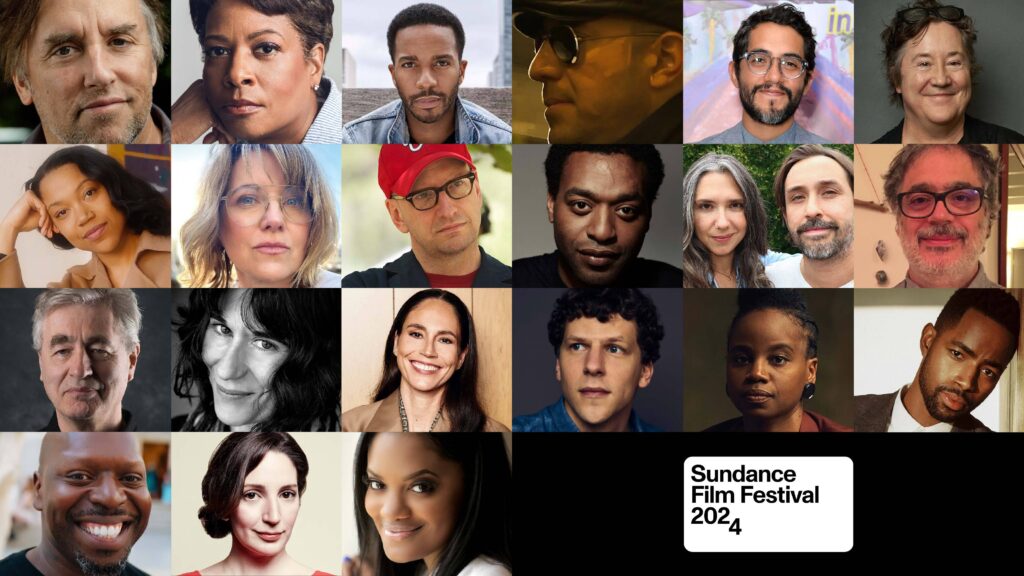
“Sundance Films Explore Themes of Sex, Love, Gender, and Legal Issues”

# Sundance 2025: Documentaries That Explore Gender, Power, and the Law
Amid increasing political tensions and legislative battles over gender, reproductive rights, and personal freedoms, the 2025 Sundance Film Festival emerges as a timely platform for critical storytelling. This year, five thought-provoking documentaries—spanning the United States, China, and Italy—delve into the intersections of gender, sex, power, and legality. These films not only expose the struggles and injustices faced by marginalized communities but also challenge audiences to examine mainstream narratives and media representations.
## **Heightened Scrutiny** (Dir. Sam Feder)
A piercing look at the rise of anti-trans legislation, *Heightened Scrutiny* follows ACLU attorney Chase Strangio in his fight against discriminatory policies, including Tennessee’s *Senate Bill 1*, which bans gender-affirming medical treatments for minors. The film captures the resilience of trans individuals and activists facing legal systems designed to erase their rights.
One of the most memorable moments occurs when a young trans girl, Mila, confronts a school board brazenly ignoring public testimony. “I learned respect in kindergarten!” she shouts, demanding their attention.
Additionally, the documentary argues that mainstream media has been complicit in pushing harmful narratives that fuel these policies. With op-eds and cover stories shaping trans discourse in detrimental ways, *Heightened Scrutiny* warns of the media’s role in the legal persecution of trans individuals.
## **GEN_** (Dir. Gianluca Matarrese)
Set in Milan’s Niguarda public hospital, *GEN_* examines the overlap between gender-affirming health care and assisted reproductive technologies (ART). Through intimate moments between patients and the compassionate Dr. Maurizio Bini, the film highlights how medical professionals often navigate legal and ethical dilemmas that blur the lines between what is right and what is permissible.
From a trans man considering sperm preservation to a middle-aged woman struggling with miscarriages, the documentary humanizes hormone treatments and fertility interventions, challenging societal and religious stigmas that often restrict access to such care.
## **Sugar Babies** (Dir. Rachel Fleit)
Rachel Fleit’s *Sugar Babies* sheds light on the economic realities of young women in Ruston, Louisiana—a region with one of the lowest minimum wages in the U.S. The film follows Autumn Johnson, a social media-savvy entrepreneur teaching women how to make money entertaining online “sugar daddies.”
While the documentary initially presents a humorous glimpse into the world of digital flirtation, it gradually reveals a deeper critique of systemic income inequality. Autumn’s experience is not an outlier but rather a reflection of the financial desperation many young women face today. Fleit avoids condescension, portraying these women as resourceful individuals navigating an exploitative system.
## **The Dating Game** (Dir. Violet Du Feng)
Set in Chongqing, China, *The Dating Game* follows three men participating in a unique “dating camp” designed to address China’s gender imbalance—where men outnumber women by 30 million. Coach Hao, the camp’s expert, provides blunt but practical advice on grooming, texting strategies, and confidence-building.
While humorous, these men’s emotional and financial struggles reveal the far-reaching consequences of China’s One Child Policy. The film carefully balances comedy and pathos, presenting the participants’ longing for companionship with profound sincerity.
## **Predators** (Dir. David Osit)
David Osit’s *Predators* revisits the infamous NBC show *To Catch a Predator* and its vigilante-style entrapment of alleged sex offenders. The documentary goes beyond sensationalism, questioning the ethics of reality TV justice.
By exposing what *wasn’t* shown on television—such as men pleading for mental health care or a suspect’s suicide to avoid public humiliation—*Predators* reveals the dark side of America’s true-crime obsession. While never defending child exploitation, the film urges viewers to reflect on whether public shaming leads to meaningful change or simply feeds a cycle of entertainment-driven punishment.
—
These documentaries collectively challenge prevailing narratives surrounding gender, power, and legality. Whether exposing media complicity in anti-trans policies, interrogating economic disparities, or deconstructing justice in the digital age, these films demand deeper thought in a cultural and political landscape frequently shaped by knee-jerk reactions rather than nuanced understanding.
If Sundance 2025 makes one thing clear, it’s that storytelling remains one of the most powerful tools for change.